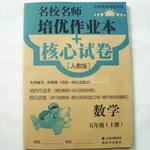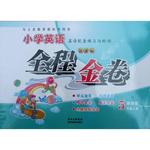
Teachers should allow their students to study ________ from the start, and it is bound to result in their ability to deal with problems on their own.
A. theoretically B. socially C. optionally D. autonomously
 名校名师培优作业本加核心试卷系列答案
名校名师培优作业本加核心试卷系列答案 全程金卷系列答案
全程金卷系列答案科目:高中英语 来源:2015届湖南娄底高中名校高三9月联考英语试卷(解析版) 题型:书面表达
Directions: Write an English composition according to the instructions given below.
请根据以下提示,并结合事例,用英语写一篇短文。
A true friend is someone who reaches for your hand and touches your heart.
注意:1.无须写标题; 2.不得透露个人信息和学校名称;3.词数不少于120字。
查看答案和解析>>
科目:高中英语 来源:2015届湖北黄冈蕲春第一高级中学高二下期中英语试卷(解析版) 题型:书面表达
Every one of us has shortcomings. However, what’s the most important is that we should recognize them and overcome them.
注意:①无须写标题,不得照抄英语提示语;
②除诗歌外,文体不限;
③文中不得透漏个人姓名和学校名称;
④词数不少于120。
查看答案和解析>>
科目:高中英语 来源:2015届湖北黄冈蕲春第一高级中学高二下期中英语试卷(解析版) 题型:单项填空
It has been announced recently by the Chinese government that couples in China will be ___________to have two children if one of the parents is an only child.
A. attended B. permitted
C. appealed D. persuaded
查看答案和解析>>
科目:高中英语 来源:2015届湖北省荆门市高二下期末质量检测英语试卷(解析版) 题型:阅读理解
It’s still there, the Vietnamese school where my brother and I used to go. Even with a new coat of paint and the high wire fence, the school I knew ten years ago remains the same.
Every day at 5 p.m., instead of flying kites with our friends, my brother and I had to go to Vietnamese school. No amount of kicking, screaming, or arguing could stop my mother, who was determined to have us learn the language of our culture. She held us by the collar and walked with us the seven long, hilly blocks from our home to school, leaving our tearful faces before the front of the school.
We all sat in little chairs in a big empty room, which had a slight smell of old clothes that had been stored for a long time. I hated that smell. There was a stage far to the right, with an American flag on one side and the flag of the Republic of Vietnam on the other side.
Although the school mainly taught language ---- speaking, reading, dictation ---- the lessons always began with an exercise in politeness. With the entrance of the teacher, the best student would tap a bell and everyone would get up, and say in Vietnamese, "How are you, teacher?"
The language always made me embarrassed. More often than not, I had tried to separate myself from the loud voice that followed me whenever I went to the American supermarket outside our area. The voice belonged to my grandmother, a small old woman who could shout louder than anyone on the street. Her Vietnamese was quick, it was loud, and it was not beautiful.
In our area, the comings and goings of hundreds of Vietnamese on their daily tasks sounded crazy. I did not want to be thought of as being mad, as talking stupid. When I spoke English, people nodded at me, smiled and encouraged me. Even Vietnamese people would laugh and say that I’d do well in life.
My brother was even stricter than I about speaking English. He was especially cruel towards my mother, scolding her for her poor English. Bits of Vietnamese were often mixed in her conversation.
After two years of struggle, I finally divorced my culture. I was permitted to stop Vietnamese school. I thought of myself as American. At last, I thought I was one of you; I wasn’t one of them.
Sadly, I am only an American.
1.What can be learned from the passage?
A. The author’s brother liked learning Vietnamese.
B. The author’s mother taught him English at home.
C. The author’s mother put her sons in a language school in Vietnam.
D. The author didn’t like learning Vietnamese when he was young.
2.The author often felt embarrassed because ________.
A. his Vietnamese was not beautiful enough
B. his grandma spoke Vietnamese loudly in public
C. he could not fly kites like other kids at school
D. his mother always treated him rudely in the market
3.It can be inferred from the last paragraph that the author feels ________.
A. regretful B. peaceful C. satisfied D. frightened
4.What’s the theme of the passage?
A. It is important to adapt to a new environment.
B. It is important to remember your childhood.
C. It is important to appreciate your own culture.
D. It is important to learn a foreign language.
查看答案和解析>>
科目:高中英语 来源:2015届湖北省荆门市高二下期末质量检测英语试卷(解析版) 题型:单项填空
It’s widely agreed that the _______of our sports system, rather than foreign coaches, will be helpful to Chinese football.
A. adaptation B. appearance C. reform D. promotion
查看答案和解析>>
科目:高中英语 来源:2015届湖北浠水实验高级中学高三上期中英语试卷(解析版) 题型:阅读理解
“Everybody loves a bargain.” One person's useless, ugly, or broken object can be another person's bargain. That is why so many Americans do not throw things away. They put them outside their houses. They put on a “For Sale” sign. And, as simple as that, they have a yard sale.
The sellers put a paid announcement(付费通告) in a local newspaper. It tells when and where the yard sale will take place. These sales are very popular during weekends in spring, summer, and autumn. Early in the morning, all the things to be sold are carried out of the house. Then they sit all day in the sunlight----like tired guests at a party----waiting for someone to take them home.
Just about anything can be sold at a yard sale. Sometimes, there are more clothes than anything else. Cooking equipment is also popular. So are old toys, tools, books, tables and chairs. Then there are objects called “white elephants”. A white elephant is something you think is extremely ugly or useless. It may be an electric light shaped like a fish. You feel a sharp pain whenever you look at it. To someone else, however, it might be a thing of beauty and joy.
Some people go to yard sales to find a special thing that they collect. It may be old toy trains, for example, or painting of dogs. Experts say more Americans are collecting old things now than ever before. Most people who go to yard sales, however, are not looking for anything special. They might buy an object simply because it costs so little. They enjoy negotiating(谈判) over prices, even if they really do not need the object. Later, they may hold their own yard to sell all the things they have bought.
1.What kind of things will go to a yard sale?
A. Cheap and ugly things.
B. Things people no longer use.
C. Things out of season.
D. Things of great value.
2.A white elephant refers to _________.
A. something that can cause a feeling of pain
B. something disliked by the owners while appreciated by others
C. something sold at the lowest prices
D. a toy shaped like a fish
3.Most people go to yard sales to________.
A. find valuable paintings
B. look for something special
C. find a bargain
D. kill their time
4.We can infer from the last paragraph that__________.
A. people may find something of great value on a yard sale
B. yard sales only attract those who have a low income
C. things on a yard sale can cost people a lot
D. most people don’t want to go to yard sales.
查看答案和解析>>
科目:高中英语 来源:2015届湖北咸宁高三三校联考英语试卷(解析版) 题型:阅读理解
Unlike chemists and physicists, who usually do their experiments using machines, biologists and medical researchers have to use living things like rats. But there are three Nobel prize-winning scientists who actually chose to experiment on themselves – all in the name of science, reported The Telegraph.
1. Werner Forssmann (Nobel prize winner in 1956)
Forssmann was a German scientist. He studied how to put a pipe inside the heart to measure the pressure inside and decide whether a patient needs surgery.
Experiments had been done on horses before, so he wanted to try with human patients. But it was not permitted because the experiment was considered too dangerous.
Not giving up, Forssmann decided to experiment on himself. He anaesthetized (麻醉) his own arm and made a cut, putting the pipe 30 centimeters into his vein. He then climbed two floors to the X-ray room before pushing the pipe all the way into his heart.
2. Barry Marshall (Nobel prize winner in 2005)
Most doctors in the mid-20th century believed that gastritis was down to stress, spicy food or an unusually large amount of stomach acid. But in 1979 an Australian scientist named Robin Warren found that the disease might be related to a bacteria called Helicobacter pylori.
So he teamed up with his colleague, Barry Marshall, to continue the study. When their request to experiment on patients was denied, Marshall bravely drank some of the bacteria. Five days later, he lost his appetite and soon was vomiting each morning – he indeed had gastritis.
3. Ralph Steinman (Nobel prize winner in 2011)
This Canadian scientist discovered a new type of immune system cell called the dendritic cell. He believed that it had the ability to fight against cancer.
Steinman knew he couldn’t yet use his method to treat patients. So in 2007, when doctors told him that he had cancer and that it was unlikely for him to live longer than a year, he saw an opportunity.
With the help of his colleagues, he gave himself three different vaccines based on his research and a total of eight experimental therapies. Even though Steinman eventually died from his cancer, he lived four and a half years, much longer than doctors had said he would.
1.What’s the main purpose of the article?
A. To introduce a few Nobel prize winners who did experiments on themselves.
B. To list difficulties that scientists went through in order to make important discoveries.
C. To explain why some scientists chose to experiment on themselves.
D. To introduce some dangerous experiments that Nobel prize winners did on themselves.
2.Which of the following is TRUE according to the article?
A. Forssmann’s experiment ended in failure.
B. Forssmann had the pipe pushed all the way into his heart.
C. Barry Marshall succeeded by drinking some Helicobacter pylori.
D. Barry Marshall’s experiment on himself confirmed that most doctors’ belief about gastritis
was correct.
3.The underlined word “gastritis” in Paragraph 5 probably means ______.
A. a kind of bacteria
B. a kind of stomach disease
C. a new type of therapy
D. a large amount of stomach acid
4.From the text, we can conclude that Ralph Steinman ______.
A. discovered a new type of cancer cell called the dendritic cell
B. tried different therapies containing the dendritic cell on himself
C. had his request to experiment on patients denied
D. believed that he was better than doctors at treating cancer
查看答案和解析>>
科目:高中英语 来源:2015届浙江省协作体高三第一次适应性测试英语试卷(解析版) 题型:单项填空
Quancheng Square is one of _____ largest in China, _____ second to Tiananmen Square.
A. the; the B. the: a C. /; the D. the; /
查看答案和解析>>
湖北省互联网违法和不良信息举报平台 | 网上有害信息举报专区 | 电信诈骗举报专区 | 涉历史虚无主义有害信息举报专区 | 涉企侵权举报专区
违法和不良信息举报电话:027-86699610 举报邮箱:58377363@163.com